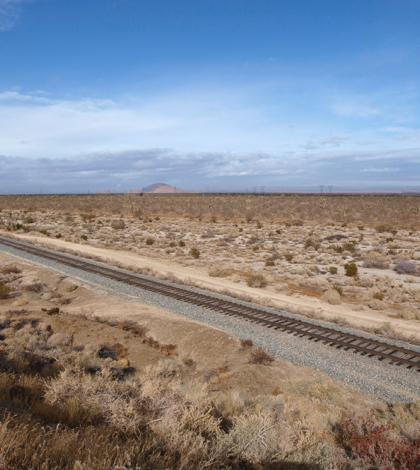Mojave River Pipeline and Others Jeopardized.
A decision October 2nd by the Federal Bureau of Land Management (BLM) could cause significant delays in the construction of future water pipelines and endanger the permitting of existing pipelines on federal land.
In an unprecedented move, the Federal Bureau of Land Management released a heavily burdensome administrative determination requiring extraordinary environmental review of ancillary railroad right of way uses that had previously been noncontroversial. Under the interpretation, all water projects along 1875 Act right of ways would require independent review under the National Environmental Policy Act, a stringent process that can take up to 5 years and is at the discretion of the BLM.
Railroad Right-of-Ways granted under the 1875 Railroad Right of Way Act have always been liberally interpreted to allow railroads to sublease railroad right of ways for purposes of pipelines and conduit for oil, natural gas, water, electricity and telecommunications activities. Under previous Solicitor opinions, these activities occurring in existing ROW’s were exempt from federal environmental review as the overlying easement for rail service is a more intensive use.
Under the 1875 Act, railroads not only have easement to build a rail line, their easement exists 100 feet in width on both sides from the center rail line.
In 2011, the Solicitor’s office revised a prior opinion to state that other uses granted by the railroads could “include commercial activities, so long as the activity derives from or furthers [at least in part] a railroad use.”
In the recent determination related to the Cadiz Water Project, a water conservation and transmission project that includes a 43 mile pipeline previously authorized by the Arizona and California Railroad (ARZC), the BLM expanded this definition even further to require that any ancillary use “originate” from a railroad purpose.
As part of the agreement between ARZC and Cadiz Inc., Cadiz would provide the railroad water along the rail line for fire suppression, fiber optics facilities for communications purposes, generate hydro-electric power exclusively for the railroad and water for a steam powered touring train to be operated by the railroad.
While clearly meeting the Solicitor’s opinion of “furthering” a railroad purpose, the BLM released an initial determination that the “conveyance of water for public consumption” along an existing railroad right-of-way “is not a railroad purpose because the activity itself is not necessary for the construction or operation of a railroad, and the origin of the activity itself is a non-railroad purpose.”
This reinterpretation threatens the use of railroad ROW for existing and future water pipelines throughout the Western United States which has the largest area of Federal land in the country and is by far the most vulnerable region in the United States for drought conditions, like the current drought affecting California.
Many existing projects, such as the Mojave River Pipeline operated by the Mojave Water Agency currently use railroad ROW across federal land to convey water to customers. Under the new interpretation by both the Solicitor and the BLM, these uses could be enjoined until they are reviewed under NEPA.
How many water agencies could be affected by this new determination is unknown.
 California Water News Daily Your Source For Water News in California
California Water News Daily Your Source For Water News in California


